Many of the students who do attend school cannot afford to buy school supplies. Teachers lack access to essential services and training, and schools struggle to meet even the most fundamental needs. Parental involvement is also limited, making it harder to ensure children receive a quality education.
The Norwegian Refugee Council (NRC), with support from the European Union through its Humanitarian Aid Operations, intervened at 14 October School in Marib governorate. There, we helped more than 310 children with remedial lessons and other support needed to access high-quality education.
This intervention reflects NRC’s broader education approach in Yemen, which emphasises community engagement, safe and inclusive learning environments, and tailored support for children at risk of being left behind. With EU funding, NRC managed to put this strategy into action in 32 schools, reaching more than 33,700 children across the country since 2023.
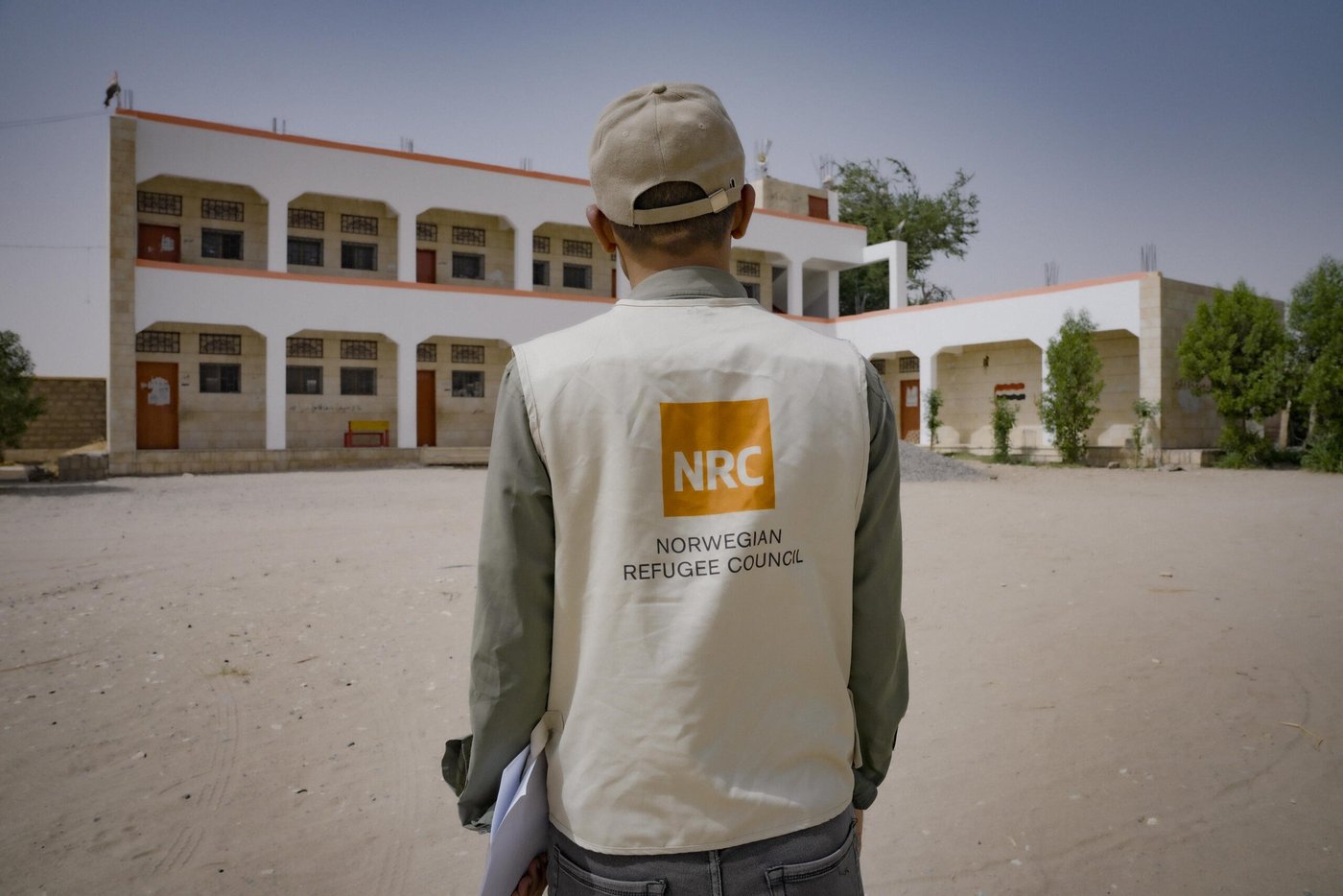
Renovating schools
School buildings require regular upkeep, especially when they serve more than 310 students. Without consistent maintenance, even basic facilities can quickly deteriorate, making it difficult to provide a safe and effective learning environment. Over time, parts of the 14 October School, such as its windows, latrines and classrooms, had begun to wear down and needed renovation to better support students and teachers.
NRC supported the school with much-needed rehabilitation, including the restoration of its latrines and classrooms.
“The classrooms used to be full of dirt since the windows were open, and children did not have appropriate latrines,” says Abdulqawi, the school principal, who has served at the school for 29 years. “Today, our children have proper classrooms and latrines, we can call it a proper learning environment.”
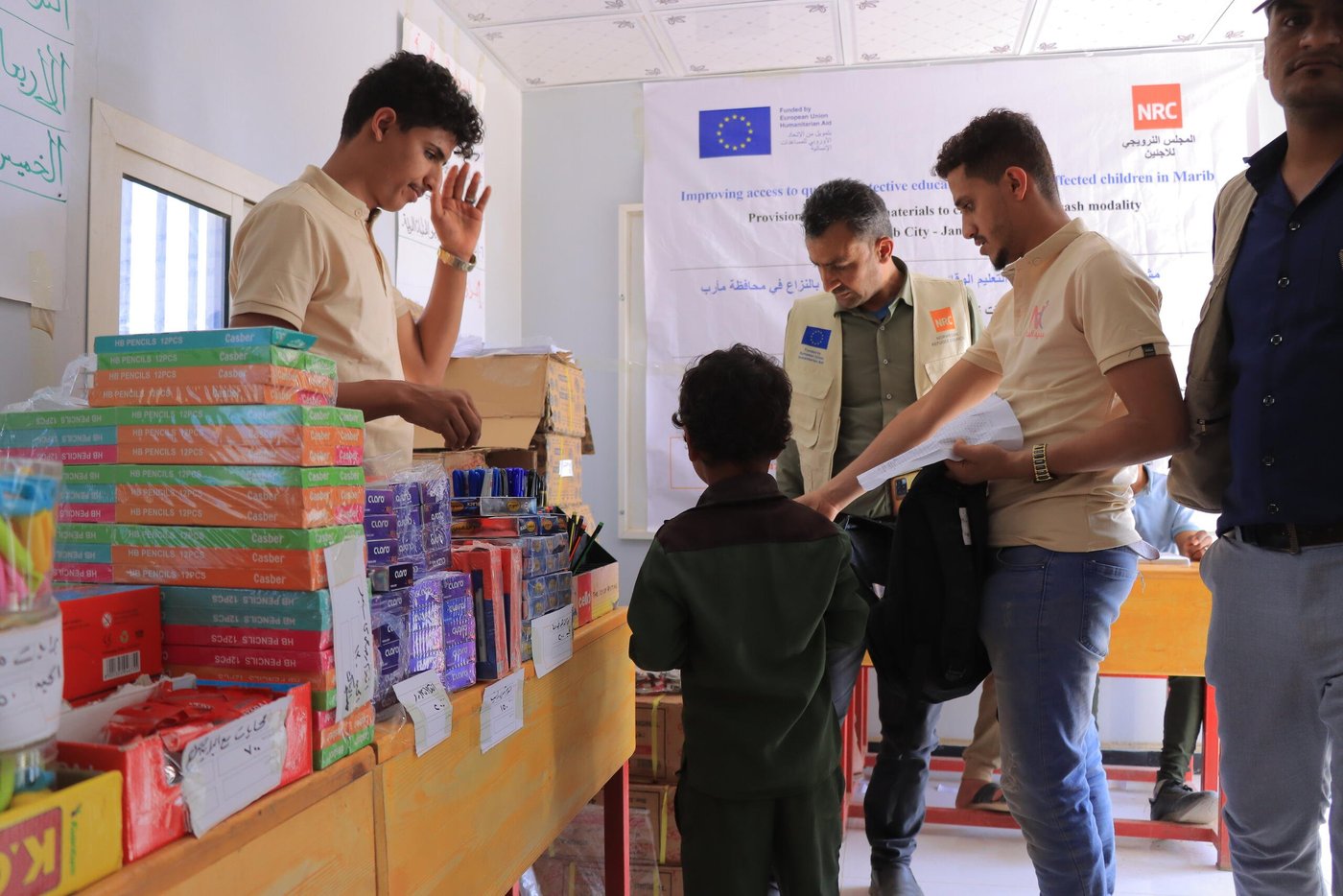
Purchasing school supplies
Instead of distributing standard school kits, this time students received financial support, allowing them to choose and purchase their own supplies.
“This approach gives students a sense of freedom and choice, helping them get what they truly need,” says Fahd, an project officer in Marib governorate. “The impact extended beyond just covering school supplies, it also helped children develop important life skills like budgeting and planning.”
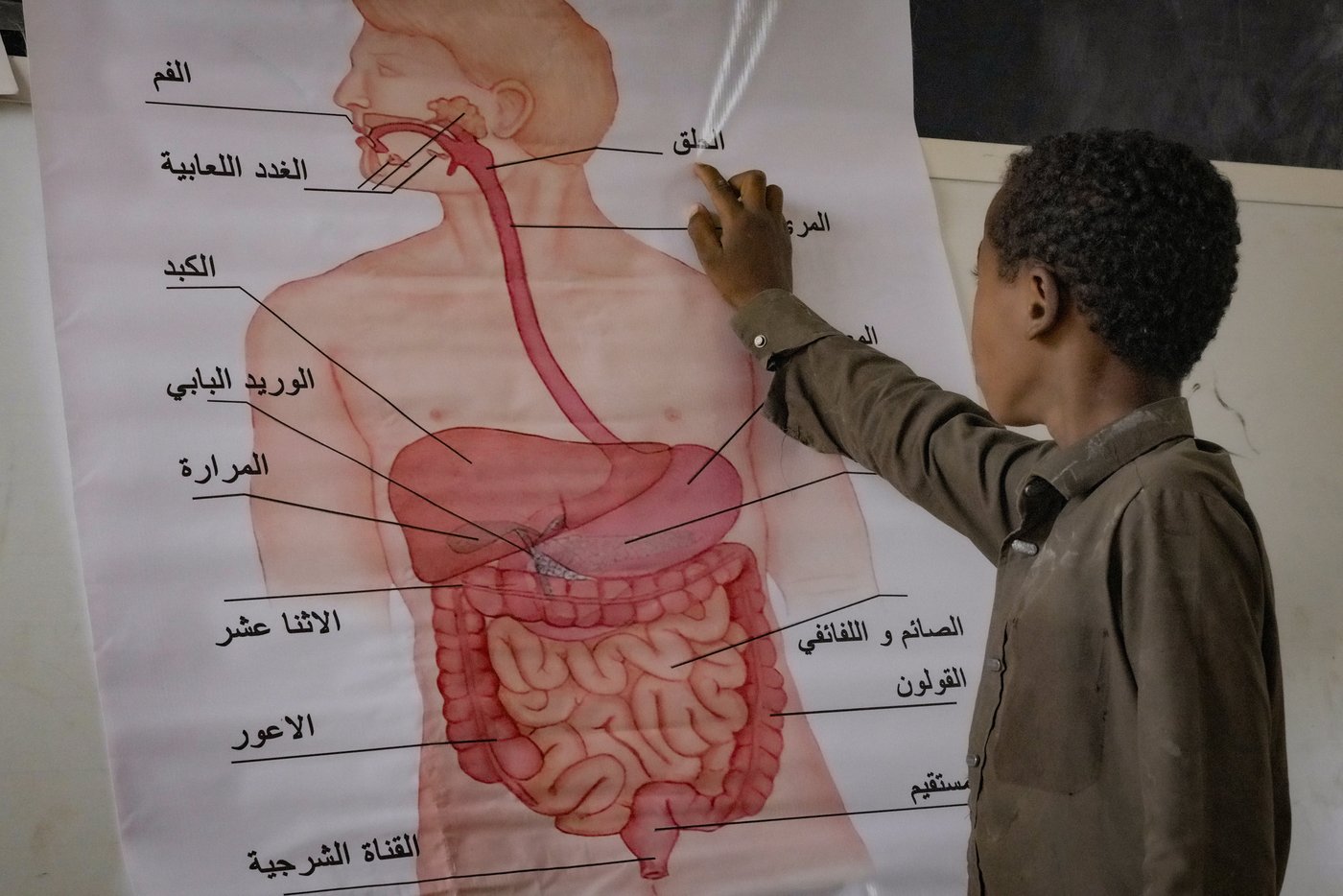
Equipping classrooms for better learning
Without illustration boards, teachers at the school had to spend extra time and effort explaining lessons to students. The absence of visual aid made it harder for students to grasp key concepts. However, NRC’s introduction of education tools and visual materials has made a significant difference.
“The educational tools played a major role in the improving the learning process and presenting the information more clearly and effectively,” Rania, at teacher at the school explains. “The illustrations also captured the students’ attention and made it easier for them to understand their lessons.”
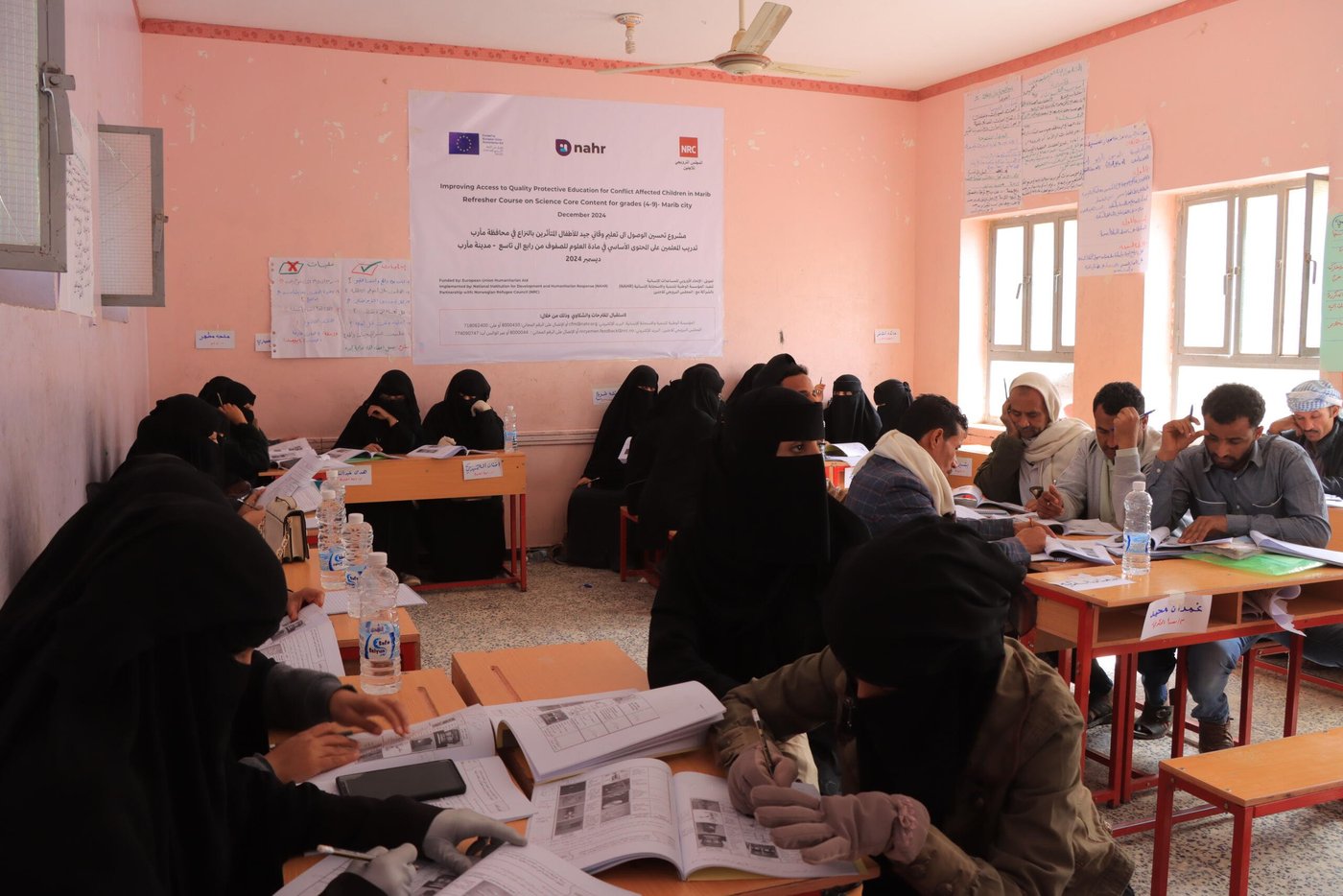
Teacher training
It isn't enough to provide a school with educational tools alone - it is also crucial to train teachers on how to use them, especially when introducing new resources like the illustration boards.
“The training helped us communicate information to the children more effectively by using the new illustrations and other educational tools provided by NRC,” says Huda, another teacher at the school. “Without this training, the learning process would not have been as successful.”
Remedial lessons
Eman, a teacher at 14 October School, believes that remedial lessons were urgently required to help more than 175 children build foundational skills like reading and writing. With NRC’s support, she confirms, those skills have been successfully developed.
“NRC provided us with teacher kits, educational tools, and everything we needed to meet the objectives of the remedial lessons,” she says. “That goal was truly achieved, and the children have gained the skills they needed.”
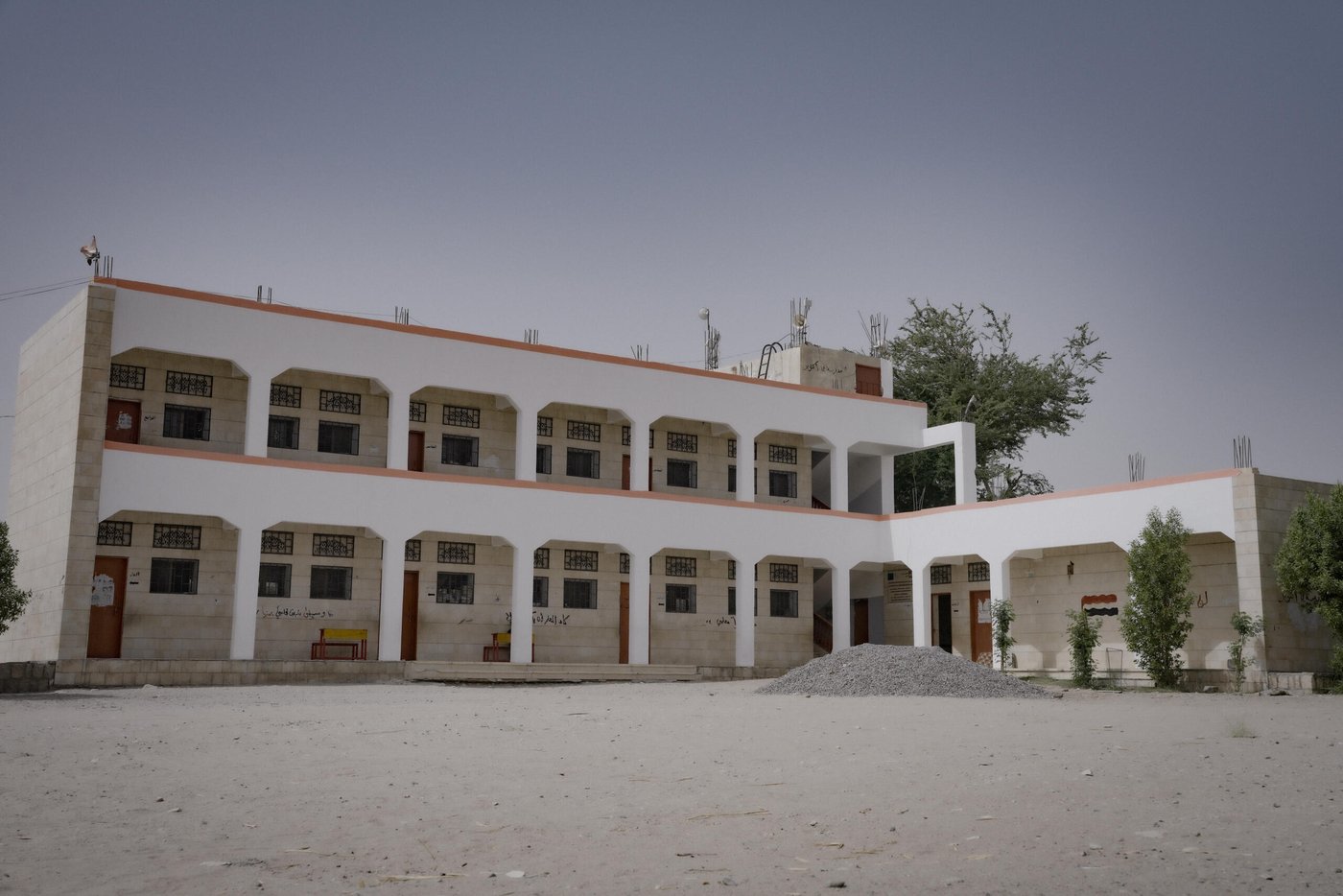
Gravelling the school yard
Teachers were given the chance to suggest activities they felt would enhance the quality of education. One such project they led involved gravelling the school yard, which had previously been a major source of dust entering classrooms and affecting students’ health.
“We suggested this activity, and NRC supported it,” says Abdulghani, 51, a teacher with 28 years of experience at the school. “We used to clean the school every day because of the dust, but the gravel helps to prevent it. I remember one windy day when a child couldn't breathe well because of the dust, but now that won’t happen again."
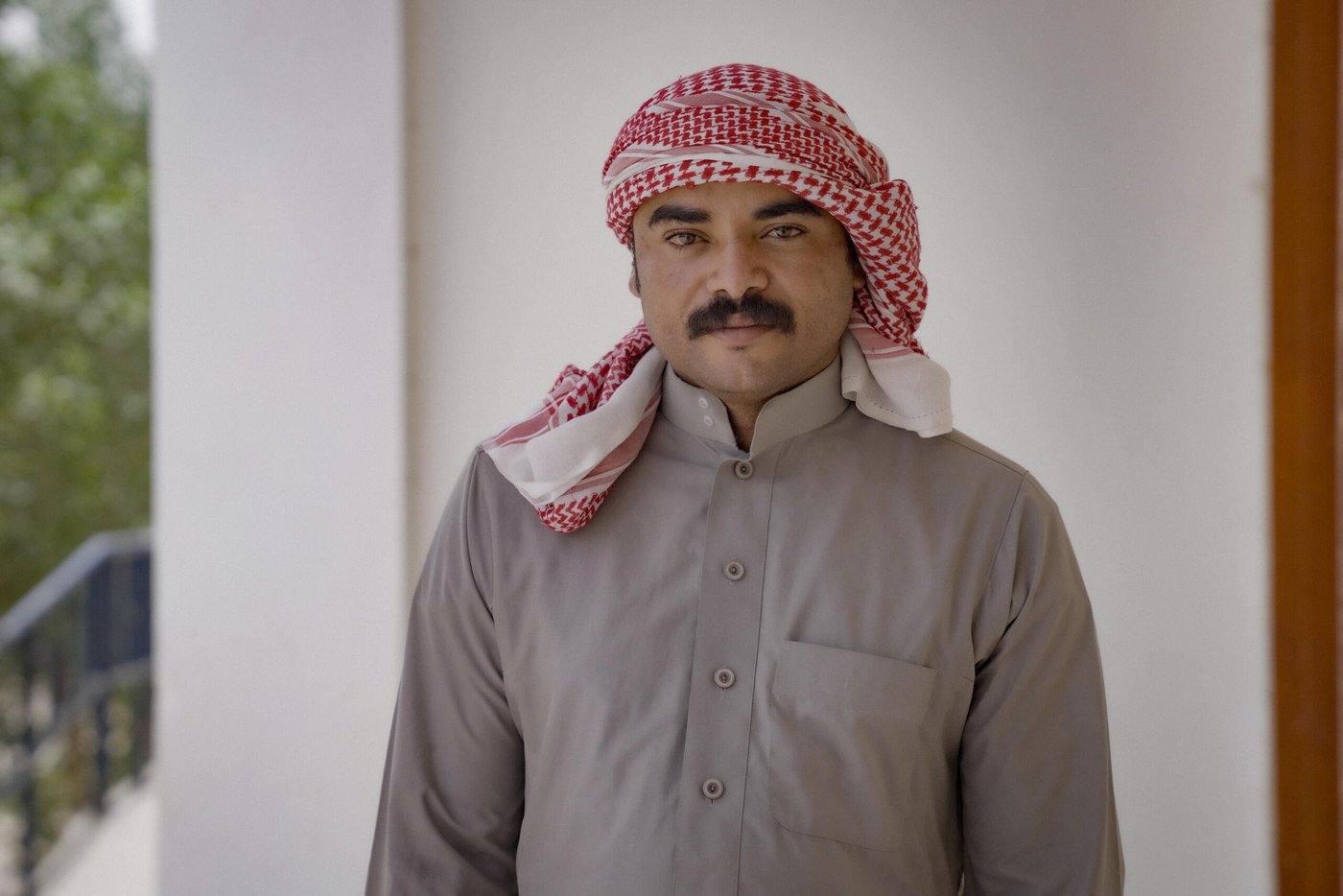
Putting parents at the heart of education
NRC’s work in education goes beyond supporting teachers and students, we also recognize the vital role families play in improving the quality of learning. That’s why NRC provided training to members of the parents' council, equipping them with various skills to help improve the educational environment and encourage children to stay in school.
“The training we received taught us how to take individual differences into consideration and how we can encourage children to go to school,” explains Murad, 31, a member of the parents' council. “Before we received the training, we weren't aware of how to collaborate with the school on our children's education, but now we work together.”
Sign up to our newsletter to read more stories from around the world.


